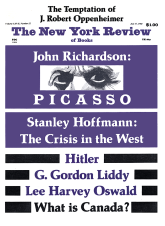#####1
It is good for strangers
of few nights to love each other
(as she and I did, eighteen years ago,
strangers of a single night)
and merge in natural rapture—
though it isn’t exactly each other
but through each other some
force in existence they don’t acknowledge
yet propitiate, no matter where,
in the least faithful of beds,
and by the quick dopplering of horns
of trucks plunging down Delancey,
and next to the iron rumblings
of outlived technology, subways up for air,
which blunder past every ten minutes
and botch the TV screen in the next apartment,
where the man in his beer
has to get up from his chair over and over
to soothe the bewildered jerking
things dance with internally,
and under the dead-light of neon,
and among the mating of cockroaches,
and like the mating of cockroaches,
who were etched before the daybreak
of the gods with compulsions to repeat
that drive them, too, to union
by starlight, without will or choice.
It is also good—and harder—
for lovers who live many years together
to feel their way toward
the one they know completely
and don’t ever quite know,
and to be with each other
and to increase what light may shine
in their ashes and let it go out
toward the other, and to need
the whole presence of the other
so badly that the two together
wrench their souls from the future
in which each mostly wanders alone
and in this familiar strange room,
for this night which lives
amid daily life past and to come
and lights it, find they hold,
perhaps shimmering a little,
or perhaps almost spectral, only the loved
other in their arms.
2
Flying home, looking about
in this swollen airplane, every seat
of it squashed full with one of us,
it occurs to me I might be the luckiest
in this planeload of the species;
for earlier,
in the airport men’s room, seeing
the middle-aged men my age,
as they washed their hands after touching
their penises—when it might have been more in accord
with the lost order to wash first, then touch—
peer into the mirror
and then stand back, as if asking, who is this?
I could only think
that one looks relieved to be getting away,
that one dreads going where he goes;
while as for me, at the very same moment
I feel regret at leaving
and happiness to be flying home.
3
As this plane dragging
its track of used ozone half the world long
thrusts some four hundred of us
toward places where actual known people
live and may wait,
we diminish down into our seats,
disappeared into novels of lives clearer than ours,
and yet we do not forget for a moment
the life down there, the doorway each will soon enter:
where I will meet her again
and know her again,
dark radiance with, and then mostly without, the stars.
Very likely she has always understood
what I have slowly learned
and which only now, after being away, almost as far away
as one can get on this globe, almost
as far as thoughts can carry—yet still in her presence,
still surrounded not so much by reminders of her
as by things she had already reminded me of,
shadows of her
cast forward and waiting—can I try to express:
that love is hard,
that while many good things are easy, true love is not,
because love is first of all a power,
its own power,
which continually must make its way forward, from night
into day, from transcending union always forward into difficult
day.
And as the plane descends, it comes to me,
in the space
where tears stream down across the stars,
tears fallen on the actual earth
where their shining is what we call spirit,
that once the lover
recognizes the other, knows for the first time
what is most to be valued in another,
from then on, love is very much like courage,
perhaps it is courage, and even
perhaps
only courage. Squashed
out of old selves, smearing the darkness
of expectation across experience, all of us little
thinkers it brings home having similar thoughts
of landing to the imponderable world,
the transcontinental airliner,
resisting its huge weight down, comes in almost lightly,
to where
with sudden, tiny, white puffs and long, black, rubberish smears
all its tires know the home ground.
This Issue
July 17, 1980



